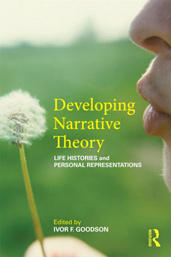Developing Narrative Theory: life histories and personal representation
Narrativity, Learning and Flexibility: towards the narrative future
Significantly, we can see how this act of self-invention draws heavily on pre-existing models and scripts. Hence, whilst the search may be for autonomy and independence, for, in a sense, escape, the existing ‘social script’ still maintains a hold.
This is also true in the associated realm of ‘learning style’. Some learning the interviewees talk about is conventional and instrumental, employing existing educational resources. Other learning is more genuinely ‘narrative learning’ – linked to the ongoing elaboration of a life story and the linked delineation of courses of action.
Much of this latter learning is narrative learning because it is learning in the service of the identity project that is being storied and narrated. The following chart (Figure 2) summarizes the main characteristics of focussed elaborators; what is significant here is that an open, personally crafted narrative is allied to an ongoing, open and flexible delineation of courses of action. The life narratives of focussed elaborators maximize the action potential, learning potential and identity potential available for life history construction.
Figure 2
Focussed elaborators
Narrativity
- High narrativity and reflexivity.
- Personalized elaboration – clear personal vision and articulated and operationalized plans.
- Flexibility of response and repositioning well orchestrated and continuous throughout the life course. Recreate but use their ‘core identity’ as a result of a successful passage towards ‘becoming somebody’.
- High personal investment and self-belief.
Learning styles
- Instrumental learning, e.g. to become a musician or a puppeteer.
- Learning also involved in the process of definition of a self, ‘becoming somebody’. The process of identifying and inventing a self identity.
- Ongoing elaboration – episodic repositioning of the above role. Ongoing operationalization. All of these involving a learning process.
- The narrative and ongoing elaboration are primary and the learning, which is instrumental, follows that. The learning is in the service of the core identity.
- Personal development and self-development
